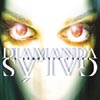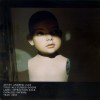 Those who have heard the gorgeous music coming from Ida are alreadyprimed and ready for Nanang Tatang, and chances are will find plentythere to appreciate. Mukiis the latest music coming from husband and wife Daniel Littleton andElizabeth Mitchell, Ida's core, and is laden with the same elementsthat make their music so compelling, as well as some interestingadditions here and there. Nanang Tatang's debut features downtemposongs and beautiful harmonies with quiet and sparse compositions, aswell as wild tracks and a new appreciation for drone and an oftenelectronic pulse. Gladly, for these two, it's the simplest things thatwork the best, and Muki is a welcome addition to their growingcatalog. Glitch beats and processed instruments create a lovely bed forMitchell and Littleton to play around on, and whether a song featuresone or the other solo or both singing their trademark gorgeousharmonies, the hairs on the back of my neck stand up in awe of it all.Even though the format hasn't really changed all that much, there is afreshness to some of the arrangements and a forward-thinking stancethat shows their passion for trying new things hasn't dimmed. Thisappears to be a very personal record for the couple, almost a renewalof vows to each other, where they are the only collaborators needed notout of necessity but desire. Mitchell sings "You saved me from myself"and there's a sincere respect, not a desperation, in her voice; and theonly time the lyrics address the downside is in retrospect, as thoughthose times are long gone. It's a lush and sanguine recording, and eventhough complainers would have the same nitpicking joy here (too mellow,not enough percussion, etc.), let them stay away. This one is almostcustom-made for those who would appreciate this at face value: a loveletter to someone who supports you like no other.
Those who have heard the gorgeous music coming from Ida are alreadyprimed and ready for Nanang Tatang, and chances are will find plentythere to appreciate. Mukiis the latest music coming from husband and wife Daniel Littleton andElizabeth Mitchell, Ida's core, and is laden with the same elementsthat make their music so compelling, as well as some interestingadditions here and there. Nanang Tatang's debut features downtemposongs and beautiful harmonies with quiet and sparse compositions, aswell as wild tracks and a new appreciation for drone and an oftenelectronic pulse. Gladly, for these two, it's the simplest things thatwork the best, and Muki is a welcome addition to their growingcatalog. Glitch beats and processed instruments create a lovely bed forMitchell and Littleton to play around on, and whether a song featuresone or the other solo or both singing their trademark gorgeousharmonies, the hairs on the back of my neck stand up in awe of it all.Even though the format hasn't really changed all that much, there is afreshness to some of the arrangements and a forward-thinking stancethat shows their passion for trying new things hasn't dimmed. Thisappears to be a very personal record for the couple, almost a renewalof vows to each other, where they are the only collaborators needed notout of necessity but desire. Mitchell sings "You saved me from myself"and there's a sincere respect, not a desperation, in her voice; and theonly time the lyrics address the downside is in retrospect, as thoughthose times are long gone. It's a lush and sanguine recording, and eventhough complainers would have the same nitpicking joy here (too mellow,not enough percussion, etc.), let them stay away. This one is almostcustom-made for those who would appreciate this at face value: a loveletter to someone who supports you like no other. Those who have heard the gorgeous music coming from Ida are alreadyprimed and ready for Nanang Tatang, and chances are will find plentythere to appreciate. Mukiis the latest music coming from husband and wife Daniel Littleton andElizabeth Mitchell, Ida's core, and is laden with the same elementsthat make their music so compelling, as well as some interestingadditions here and there. Nanang Tatang's debut features downtemposongs and beautiful harmonies with quiet and sparse compositions, aswell as wild tracks and a new appreciation for drone and an oftenelectronic pulse. Gladly, for these two, it's the simplest things thatwork the best, and Muki is a welcome addition to their growingcatalog. Glitch beats and processed instruments create a lovely bed forMitchell and Littleton to play around on, and whether a song featuresone or the other solo or both singing their trademark gorgeousharmonies, the hairs on the back of my neck stand up in awe of it all.Even though the format hasn't really changed all that much, there is afreshness to some of the arrangements and a forward-thinking stancethat shows their passion for trying new things hasn't dimmed. Thisappears to be a very personal record for the couple, almost a renewalof vows to each other, where they are the only collaborators needed notout of necessity but desire. Mitchell sings "You saved me from myself"and there's a sincere respect, not a desperation, in her voice; and theonly time the lyrics address the downside is in retrospect, as thoughthose times are long gone. It's a lush and sanguine recording, and eventhough complainers would have the same nitpicking joy here (too mellow,not enough percussion, etc.), let them stay away. This one is almostcustom-made for those who would appreciate this at face value: a loveletter to someone who supports you like no other.
Those who have heard the gorgeous music coming from Ida are alreadyprimed and ready for Nanang Tatang, and chances are will find plentythere to appreciate. Mukiis the latest music coming from husband and wife Daniel Littleton andElizabeth Mitchell, Ida's core, and is laden with the same elementsthat make their music so compelling, as well as some interestingadditions here and there. Nanang Tatang's debut features downtemposongs and beautiful harmonies with quiet and sparse compositions, aswell as wild tracks and a new appreciation for drone and an oftenelectronic pulse. Gladly, for these two, it's the simplest things thatwork the best, and Muki is a welcome addition to their growingcatalog. Glitch beats and processed instruments create a lovely bed forMitchell and Littleton to play around on, and whether a song featuresone or the other solo or both singing their trademark gorgeousharmonies, the hairs on the back of my neck stand up in awe of it all.Even though the format hasn't really changed all that much, there is afreshness to some of the arrangements and a forward-thinking stancethat shows their passion for trying new things hasn't dimmed. Thisappears to be a very personal record for the couple, almost a renewalof vows to each other, where they are the only collaborators needed notout of necessity but desire. Mitchell sings "You saved me from myself"and there's a sincere respect, not a desperation, in her voice; and theonly time the lyrics address the downside is in retrospect, as thoughthose times are long gone. It's a lush and sanguine recording, and eventhough complainers would have the same nitpicking joy here (too mellow,not enough percussion, etc.), let them stay away. This one is almostcustom-made for those who would appreciate this at face value: a loveletter to someone who supports you like no other. There's a letter in this month's Wireabout a snarky review of a Muslimgauze disc, and predictably, theargument is all about politics. Inflammatory track names and linernotes, though, seem like lousy things to base a review of instrumentalmusic on, particularly in a world that's able to shrug off Snoop'slyrics for the sake of Dre's beats. As for the -music- on Red Madrassa,there's a lot of stuff that Muslimgauze fans have heard before: thepeacocks are back, as are some of the more prominent vocal samples anddub rhythms from the albums released in '98 and '99. Basic elements oftwo new tunes are mixed and matched with the old favorites to create 68minutes of gradually shifting material, and it works pretty well asactive-listening or background music. Jones' signature (jarring) rhythmchanges, bursts of distortion, and the head-nodding grooves that can goon forever are all here; this far into the process of mining what'sleft of his tapes for viable albums, though, it's also not surprisingto find a couple of moments where it sounds like he was just pissingaround with his gear. Red Madrassa won't change anybody's mind about his music, but if it's been a while since the last fix, this one should be pleasing.
There's a letter in this month's Wireabout a snarky review of a Muslimgauze disc, and predictably, theargument is all about politics. Inflammatory track names and linernotes, though, seem like lousy things to base a review of instrumentalmusic on, particularly in a world that's able to shrug off Snoop'slyrics for the sake of Dre's beats. As for the -music- on Red Madrassa,there's a lot of stuff that Muslimgauze fans have heard before: thepeacocks are back, as are some of the more prominent vocal samples anddub rhythms from the albums released in '98 and '99. Basic elements oftwo new tunes are mixed and matched with the old favorites to create 68minutes of gradually shifting material, and it works pretty well asactive-listening or background music. Jones' signature (jarring) rhythmchanges, bursts of distortion, and the head-nodding grooves that can goon forever are all here; this far into the process of mining what'sleft of his tapes for viable albums, though, it's also not surprisingto find a couple of moments where it sounds like he was just pissingaround with his gear. Red Madrassa won't change anybody's mind about his music, but if it's been a while since the last fix, this one should be pleasing.  Like the agonizing lament of a bereaved widow at a Bedouin funeral, like the piercing shriek of a peasant woman as her village is burned to the ground in some terrible holocaust ignored by the world, like the confrontational screech of a decadent French poetess-provocateur, like the guttural schrei of a German expressionist diva, or a stricken plague victim coughing up her last mouthful of blood and lymph, Diamanda Gal?' vocal ululations pierce straight to the heart, unearthing a swell of deadly inhumanity that bubbles up from our collective unconscious memory of the brutal atrocities of history.
Like the agonizing lament of a bereaved widow at a Bedouin funeral, like the piercing shriek of a peasant woman as her village is burned to the ground in some terrible holocaust ignored by the world, like the confrontational screech of a decadent French poetess-provocateur, like the guttural schrei of a German expressionist diva, or a stricken plague victim coughing up her last mouthful of blood and lymph, Diamanda Gal?' vocal ululations pierce straight to the heart, unearthing a swell of deadly inhumanity that bubbles up from our collective unconscious memory of the brutal atrocities of history.Mondo Macabro, as its name suggests, is devoted to releasing onto DVD long-forgotten horror films from around the world. Their most recent unearthing is Seven Women for Satan (aka Les Weekends Malefiques du Comte Zaroff), made in France in 1974. Starring and directed by Michel Lemoine, it recounts the tale of a Parisian businessman, Count Zaroff, who retreats to his chateau for murder and debauchery on the weekends. He is reluctantly assisted in these pursuits by his servant, played by Howard Vernon (a regular in Jess Franco films throughout the 1970s).
 I couldn't imagine a more welcome gift this winter holiday season than two brand-new double albums from Diamanda Galàs. La Serpenta Canta is a live song recital, containing new performances of many favorite songs from her back catalog, her set drawing freely from blues, country, and Motown soul. The idea of a singer as possessed and theatrical as Diamanda Galàs covering American popular song may seem a novelty on the surface, but La Serpenta Canta has quickly become my favorite album by the Greek-American diva.
I couldn't imagine a more welcome gift this winter holiday season than two brand-new double albums from Diamanda Galàs. La Serpenta Canta is a live song recital, containing new performances of many favorite songs from her back catalog, her set drawing freely from blues, country, and Motown soul. The idea of a singer as possessed and theatrical as Diamanda Galàs covering American popular song may seem a novelty on the surface, but La Serpenta Canta has quickly become my favorite album by the Greek-American diva. The art of the sound collage and drone music has a group of key members. Mirror, Christoph Heemann, Andrew Chalk, William Basinski, and perhaps just a few more are known and loved and create music that invokes images from other worlds; be those images frightening, sublime, or esoteric, it is impossible to deny their visceral impact. Andrew Liles has been added to that list of elusive and wonderful musicians with this release.
The art of the sound collage and drone music has a group of key members. Mirror, Christoph Heemann, Andrew Chalk, William Basinski, and perhaps just a few more are known and loved and create music that invokes images from other worlds; be those images frightening, sublime, or esoteric, it is impossible to deny their visceral impact. Andrew Liles has been added to that list of elusive and wonderful musicians with this release.
 310 are back with a new album for Leaf that sees them taking a turn that may leave fans of their previous work out in the cold. It's always good to see artists making strides and tackling new challenges with their work, even when they are primarily working from a relatively accessible base as 310 are. However, 310's new direction seems to be one aimed at a larger audience, and as such suffers from an awkward directness.
310 are back with a new album for Leaf that sees them taking a turn that may leave fans of their previous work out in the cold. It's always good to see artists making strides and tackling new challenges with their work, even when they are primarily working from a relatively accessible base as 310 are. However, 310's new direction seems to be one aimed at a larger audience, and as such suffers from an awkward directness.
 Blue Star/Merge Parlour, the last in Lexicon Devil's series of F/i reissues is less essential than Winter only because it pales in comparison to previously re-released pieces of the F/i catalog, notably the full lengths What Not Now??Alan! and Space Mantra;however, like the Boy Dirt Car reissue, this disc goes beyond anostalgia trip or an attempt to cash in on recent trends. F/i wereentirely unique in their ability to rock as hugely as the greatEuropean psych bands, while sounding at the same time like a very exactproduct of the Midwestern wasteland. All the bombast and ascension intheir often sprawling songs feels tempered by layers of gloom andsuburban malaise; any futurism comes with an equivalent expression ofdisdain for an automated, static culture. The F/i sound could bedescribed as industrial psychedelic, with most songs taking off onrepetitive, kraut-influenced grooves and then treated to a healthyglossing of dirty space-age electronics. A clear touchstone would beearly Chrome, but F/i is less claustrophobic, more prone to slip intothe trance-inducing drone epics than barbed sci-fi theatrics. Theirapproach can feel tired at times, and is certainly more successful onthe aforementioned albums, but this disc includes some of the band'sgreat moments too, like the hard, swinging psych of "Blue Star,"sounding like Guru Guru blasted through a silo, or "Om Twenty-One,"where guitars fizzle and bend around grossly modulated synth tones likea punker's homemade homage to Ligeti's 2001 score. Merge Parlour,F/i's three-song side from a split with Vocokesh, shows the band movingin an increasingly electronic direction. "Pleasure Centres/The Beach,"the standout track from the split, and the best song here, is one ofthe most intense and abstract F/i songs ever, with steady torrents offeedback and distorted samples forming the backdrop for more of thefamiliar guitar squeal, waves of industrial percussion, and droningsynths. That the band's original lineup dissolved quickly after Merge Parlourproves they must have had excuses other than a stagnancy in the music.Lexicon Devil has done a nice job with these reissues, sticking to theoriginal material and liner notes without weighting them down withextraneous crap (my guess is there was more than enough). If anyone isto be canonized, it will happen, as it should, by merit of the musicalone.
Blue Star/Merge Parlour, the last in Lexicon Devil's series of F/i reissues is less essential than Winter only because it pales in comparison to previously re-released pieces of the F/i catalog, notably the full lengths What Not Now??Alan! and Space Mantra;however, like the Boy Dirt Car reissue, this disc goes beyond anostalgia trip or an attempt to cash in on recent trends. F/i wereentirely unique in their ability to rock as hugely as the greatEuropean psych bands, while sounding at the same time like a very exactproduct of the Midwestern wasteland. All the bombast and ascension intheir often sprawling songs feels tempered by layers of gloom andsuburban malaise; any futurism comes with an equivalent expression ofdisdain for an automated, static culture. The F/i sound could bedescribed as industrial psychedelic, with most songs taking off onrepetitive, kraut-influenced grooves and then treated to a healthyglossing of dirty space-age electronics. A clear touchstone would beearly Chrome, but F/i is less claustrophobic, more prone to slip intothe trance-inducing drone epics than barbed sci-fi theatrics. Theirapproach can feel tired at times, and is certainly more successful onthe aforementioned albums, but this disc includes some of the band'sgreat moments too, like the hard, swinging psych of "Blue Star,"sounding like Guru Guru blasted through a silo, or "Om Twenty-One,"where guitars fizzle and bend around grossly modulated synth tones likea punker's homemade homage to Ligeti's 2001 score. Merge Parlour,F/i's three-song side from a split with Vocokesh, shows the band movingin an increasingly electronic direction. "Pleasure Centres/The Beach,"the standout track from the split, and the best song here, is one ofthe most intense and abstract F/i songs ever, with steady torrents offeedback and distorted samples forming the backdrop for more of thefamiliar guitar squeal, waves of industrial percussion, and droningsynths. That the band's original lineup dissolved quickly after Merge Parlourproves they must have had excuses other than a stagnancy in the music.Lexicon Devil has done a nice job with these reissues, sticking to theoriginal material and liner notes without weighting them down withextraneous crap (my guess is there was more than enough). If anyone isto be canonized, it will happen, as it should, by merit of the musicalone.samples:
 If you've never heard of Milton Mapes, it's no big surprise. Just don't show up to their live gigs expecting to find Milton: the band takes their name from lead singer/songwriter Greg Vanderpool's grandfather. Their songs are straight from the dustbowl heartache fused with a country-rock sensibility that any bartender in a small town saloon would be glad to have playing on the jukebox.
If you've never heard of Milton Mapes, it's no big surprise. Just don't show up to their live gigs expecting to find Milton: the band takes their name from lead singer/songwriter Greg Vanderpool's grandfather. Their songs are straight from the dustbowl heartache fused with a country-rock sensibility that any bartender in a small town saloon would be glad to have playing on the jukebox.
 This is a weird and psychadelic EP from Ian Masters (Pale Saints) andMark Tranmer (Gnac) that fits almost nowhere in my record collectionbut is still somehow intriguing. Wingdisk combine simple drum machinepatterns with hanging, wistful synth chords to create obvious, almostnaive arrangements for Masters to sing over. Everything sounds veryhome-recorded and it joyfully spits in the face of the trendy laptopproduction that almost anyone else would have put these songs through.The songs are all stitched together with location recordings of publicplaces in Japan which to Western ears makes them all sound a little oddand out of place. I imagine the duo couped up in a Tokyo hotel Lost In Translation-styleand recording a handful of simple jams that were later sequenced intothis EP. I'm sure it didn't go down that way, but that's what isinteresting about this release. For all of its composers previousexperience with making bigger records, this seems like a deliberatelyleft-field, tiny record meant to be enjoyed by only the smallest circleof friends. It shares a reluctance to be categorized with later HisName Is Alive material and at times sounds like the work of a couple ofhigh-school friends trying their hand with a four-track tape recorder.For that mystery alone, it's worth a listen.
This is a weird and psychadelic EP from Ian Masters (Pale Saints) andMark Tranmer (Gnac) that fits almost nowhere in my record collectionbut is still somehow intriguing. Wingdisk combine simple drum machinepatterns with hanging, wistful synth chords to create obvious, almostnaive arrangements for Masters to sing over. Everything sounds veryhome-recorded and it joyfully spits in the face of the trendy laptopproduction that almost anyone else would have put these songs through.The songs are all stitched together with location recordings of publicplaces in Japan which to Western ears makes them all sound a little oddand out of place. I imagine the duo couped up in a Tokyo hotel Lost In Translation-styleand recording a handful of simple jams that were later sequenced intothis EP. I'm sure it didn't go down that way, but that's what isinteresting about this release. For all of its composers previousexperience with making bigger records, this seems like a deliberatelyleft-field, tiny record meant to be enjoyed by only the smallest circleof friends. It shares a reluctance to be categorized with later HisName Is Alive material and at times sounds like the work of a couple ofhigh-school friends trying their hand with a four-track tape recorder.For that mystery alone, it's worth a listen.samples:



